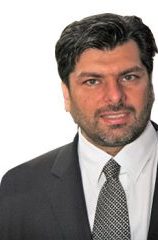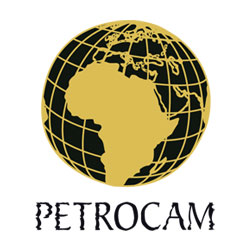In conversation with
Mr Shiraz Gany
Chief Executive Officer | Petrocam Trading (Pty) Ltd.

Tags: africa, agricultural chemicals, Energy, manufacturing and technology, petroleum, south africa
FDI Spotlight: What is the DNA of Petrocam and how did you adapt to the African market and doing business in Africa?
Shiraz Gany: The name of the company is quite significant to the business we do: ‘Petro’ for petroleum and ‘cam’ for chemicals, agriculture and metals which we used to do. While South Africa’s transport and logistics sector is stable as the infrastructure exists, it was difficult in the past for smaller businesses to gain access to the major infrastructure like rail, which was controlled by majors and created a barrier on the exporting of available metals such as iron ore and chrome. Hence, we started with multiple products and specialised service to our customers to penetrate markets controlled by major traders.
Logistics affect nearly every single business in every sector, especially if you are going into or out of Africa. A few years ago when the price of crude oil rose to over USD120, the high costs of transport and logistics also became too restrictive for us. That is when Petrocam decided to focus on the more constant and primary commodity, which is energy.
World markets are highly dependent and focused on the prices of energy resources. These markets understand that energy resources infiltrate and impacts on the prices in many other sectors. The energy sector in Africa is not only growing but it is going to continue growing rapidly for the next decade. Therefore our strategy with Africa’s energy market has, so far, worked well for us.
When looking at the African continent, it is important to know that Africa is still the hub in terms of opportunity and new markets. When doing business in Africa, you are taking something from nothing and building it up – it becomes an oyster. In the first world countries we have seen models that have been refined over time and that work. There is an opportunity for business in Africa to fast track what has taken the Western world a hundred years to do, and do it in Africa in ten to twenty years.
What do you think South Africa can and should do to empower the people and improve the current state of public and private partnerships in order to facilitate an environment which invites investment into the country?
Shiraz Gany: Funding needs to be invested in the private sector in order to accelerate growth and enhance the capabilities of businesses within this sector, including in particular, Small, Medium and Micro-sized Enterprises (SMMEs). The fact is, that if funding is difficult to access and entrepreneurs have to wait for up to two years for funding, or often even for answers, and so they risk losing the opportunities available to them.
We talk a lot about the South African government having made R2bn available for investing in start-ups; however, the problem is that most people find it very difficult to access those funds.
There is no real propeller in South Africa that has been able to turn out funding for an entrepreneurship opportunity within two or three months. I believe that the government is lacking in terms of putting the necessary human resources in place in its organisations to facilitate the effective approval of loans and grants. The South African government needs a lot more investment with and into civil society in order for projects to be lifted off the ground from blueprint stage. Some of the country’s tax revenue needs to be re-invested back into sustainably uplifting the citizens.
There are many visionaries and potential entrepreneurs in South Africa, including in the townships, who have business ideas adapt to their surroundings, but they do not have access to necessary funding, or to the adequate mentorship that is required to succeed. Even though there are many private companies and NGOs working hard to mentor young entrepreneurs, they have insufficient capacity to reach everyone and it is neither fair, nor is it possible for them to carry the burden alone.
Going forward in South Africa, public-private partnerships are not only possible, but there is an opportunity for the public and private stakeholders to repair the trust that has been broken, or that was never developed. In order for this to be achieved, there has to be a will from both government and the private sector to work in collaboration.
One of the stumbling blocks to overcome when doing business with government is that it appears somewhat of a closed club. Further the BEE Scorecard rating is flawed depending on the industry and this is taking a very long time to correct, especially in the Energy Sector. I have raised this issue with specifically the Department of Trade and Industry (DTI); where businesses that should be rated as being Level 1 B-BBEE such as Petrocam, that earning 98 percent of its revenue cross-border outside of South Africa, while most of the CSI and upliftment we do gets invested back in South Africa for the upliftment for society, yet the BEE scorecard does not adequately or correctly rate this. Due to this flawed rating system, local petroleum companies are given an easy excuse to exclude trading with our company and others like ours. There are many people who are in exactly the same position as I am.
What government should do is create sustainable projects, and as a start they should take the ones that they already have, and hand them over to young, capable entrepreneurs. I have come up with a concept to invest in Social franchises, using repetitive branding to create viable and sustainable franchises to which we would then introduce promising entrepreneurs.
Prior to considering whether they would be successful in running the franchise on an ongoing basis, and under mentorship, we would train them academically, technically and bring them into an internship program to learn about a particular franchise industry. This will determine if they could be given a grant or a loan for purchasing an equity stake in a franchisee opportunity – with or without government funding. It will not hinder individual creativity, except to create consistency and maintain a standard of operating excellence.
One such franchise concept is a restaurant-like chain in Gauteng’s townships. It is very important to understand the cultural differences in South Africa and the food is a great way to do this. We have initiated a concept in Soweto and have allowed those indigenous to the township that were involved to advise and take the lead to introduce as much of their culture as they determined necessary to make a fast food franchise work.
This is work in progress as we will complete an entire year of evolving and evaluation during 2017, in order to refine the concept. In this way, we have fast-tracked the creation of relationships and the empowerment of entrepreneurs. Through these individuals using their indigenous knowledge, their culture and background is empowered and through that relationship, they can receive the education and training needed to become powerful businessmen and women.
How do you see these franchises, as well as other projects you are involved in, educating and uplifting South African communities and entrepreneurs?
Shiraz Gany: Apartheid South Africa, unfortunately, left many people in poverty, and the current government is not doing enough to stop this cycle. There is a legacy and attitude of entitlement within our current government which seems to have spread to many other South Africans. People seem to believe that they need to catch up to what they never received during Apartheid and has proven to be a very dangerous mindset; our high unemployment and poverty rates are proof of that.
I believe we need to get into the mindset of uplifting and empowering our people through giving them the tools they did not receive previously. A good place to start is doing this from a business perspective: teach people how business works and why it is so vital to the health and growth of the country. It needs to start from the top and government officials need to get into that mindset themselves and show other South Africans that we can all live in better conditions if we stop waiting for others to give us things and instead, learn from what others know in order to do and be better.
On the social franchise project, the entrepreneurs are thought to manage the business themselves including considering the cultural aspect. Mentors will be available with the industry experience will act in a supervisory capacity and provide advice in regular intervals and when needed.
The crucial aspect is that, by having them manage everything themselves, they get the opportunity to understand the business environment, and what it is like to fail and build yourself up again, while learning skills and knowledge that can be passed on. If you do not go through the motions yourself, you cannot gain the experience and expertise needed in order to be a success, which means you cannot pass the needed expertise on to the next generation. The social franchise project aims to make entrepreneurs first-hand.
What is your message of confidence to investors regarding why they should invest in South Africa and Africa?
Shiraz Gany: I believe South Africa is a great place to invest in. There are many opportunities in the country. Although most of these opportunities are matured in South Africa there are ways to be innovative to reinvent industry in order to make good margin. South Africa is a great platform for increasing trade into the rest of Africa, just as Petrocam has broadened our presence into four other countries in Africa – Nigeria, Ghana, DRC and Kenya.
Foreign direct investment (FDI) brings new technologies, the transfer of skills and knowledge and a different perspective to doing business. It is one big reason why it is so vital that we increase the number of foreign investors in the country. South Africa is the best place in Africa to implement what FDI brings because we have the matured environments, we are stable, and we have proven that – from a business perspective – we can still stand in the face of many headwinds.
The downgrade is a good example of this: our downgrade status absolutely does not reflect the reality. The reality is that people still have to live and feed their children, which means that there will constantly be motivation for the citizens in South Africa to work at improving their lives. What the business community and investors need to do is show the workforce and educated minds that the vision of every investment is beneficial to all stakeholders, investor, corporation, employees and community as all parties have a vested interest in South Africa and its citizen’s progress.
Foreign investors also need to understand the importance of investing in the people of a country. When you look at doing business in Africa, you need to look at it not only as an oyster but an opportunity to benefit others while trying to benefit for yourself, i.e. the mentality and consideration of giving back to the people of the land is very important. Educating people on how to help themselves is, in my opinion, the best way to truly give back.
